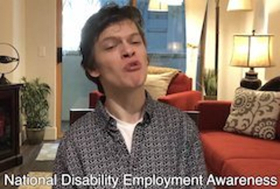SPEECHLESS Highlights Importance of Self Advocacy and Independence

In the U.S., schools were not required to provide special education until 1975. Today, the fight for inclusive education remains a constant battle for parents and students. Speechless, a comedy starring Micah Fowler, a young adult with cerebral palsy, as J.J., a high school senior with cerebral palsy, shines the spotlight on the importance of young adults taking over the Individualized Education Program (IEP) process as they grow older.
Creating an IEP, an individual education plan that outlines what a student with a disability needs to be successful in school, can be a daunting challenge for parents and often stressful as there is much to consider when determining the education of a child. The implementation of an IEP is integral for children with disabilities. An IEP is a formal plan for students who have been identified to need accommodations specific to their individual disability in the public-school system. In addition to accommodations, the classroom can be tailored within a general classroom, a smaller group or one-on-one instruction.
Parents are integral to ensuring the IEP covers the needs of the student. However, as students grow older, they are encouraged to take a larger part in the process. It is not uncommon for parents and even TEACHERS to encourage children to take part in developing their own IEPs. While the show takes a comic look at mothers, who typically advocate on behalf of their children needing IEPs, it also highlights J.J.'s journey to self-advocacy.
When J.J. zips his own zipper in the episode that aired Nov. 2, he has a renewed confidence in all of his abilities. "Someone said I couldn't when I was six and I never tried since," he said. "I wonder what else I could do."
During his senior year IEP, his aide Kenneth announces that J.J. has been on a "self-empowerment kick" and reads a list of demands. J.J.'s principal, beaming with "pride," congratulates J.J. for "such initiative."
"Turns out ... I can do a lot of things I thought people had to do for me," J.J. announces.
Taking a more active role in his IEP allows J.J. to have a strong voice in his own education and teaches him about self-advocacy and self-determination.
In an effort to assert his independence, J.J. gambles away his powerchair.
"What you did today is just because you're stupid," Kenneth tells him. "It has nothing to do with any disability."
Just like any other teenager, J.J. needs to learn his limits - including those limits that have nothing to do with his disability.
Comments
Videos

